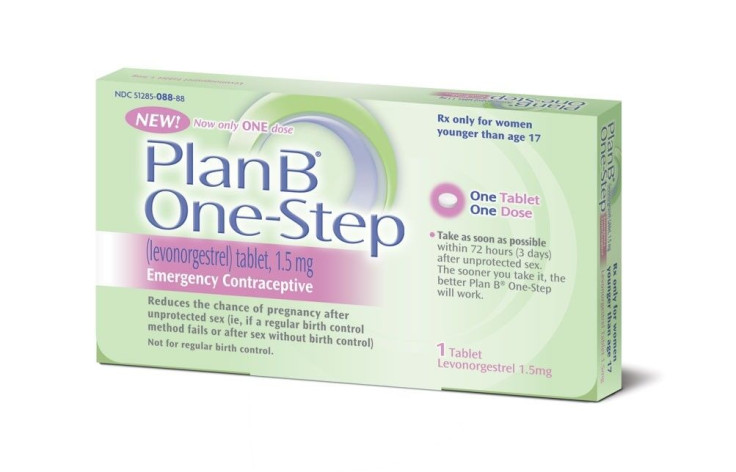
U.S. Judge Edward Korman in Brooklyn, N.Y., called on the Food and Drug Administration for what he said is a 12-year delay in making emergency contraceptive available over the counter for all women.
Korman said that, as women are fertile since they turn 11 or younger, the pill should be available to all of them. He also responded to possible backlash that the increased access to contraception might encourage irresponsible conduct by minors, saying that the case is not about "the potential misuse of Plan B by 11-year-olds."
"These emergency contraceptives would be among the safest drugs sold over-the-counter, the number of 11-year olds using these drugs is likely to be minuscule," he wrote.
While the FDA works on the commandment, here are five key points on the "morning-after pill."
1. It is currently available without prescription to women over 17
Most brands have been available over the counter since 2011, but only for women over 17 years of age -- proof of age was asked by the pharmacist.
2. It should be taken within the next 120 hours
Pregnancy does not happen instantly after sex -- it can take up to six days for the sperm and egg to meet after having sex. Emergency contraception pills work by keeping a woman's ovary from releasing an egg for longer than usual: if there is no egg, there cannot be a pregnancy.
Contrary to what some believe, the morning-after pill does not cause an abortion. Emergency contraception is birth control, not termination of a pregnancy.
3. It can be aggressive in the body
Most women who take emergency contraception do not experience any complications. However, there can be unwanted effects in the body, such as irregular periods, dizziness, headaches or even vomiting -- which if it happens within two hours, the pill should be taken again.
4. It has 90 percent of effectiveness
Plan B and Next Choice have a 90 percent chance of working if taken within the 72 following unprotected sex -- the effectiveness starts declining after that. On the other hand, Ella is 85 percent effective throughout the 120 hours after sex.
5. It should never be used in place of normal contraception
Emergency contraception should only be used as that -- an emergency method. It should never be taken regularly or be used as the regular method of birth control. Even though is a safe and effective way to prevent an unwanted pregnancy, it must be remembered that it does not prevent against STDs or HIV.
© 2025 Latin Times. All rights reserved. Do not reproduce without permission.




